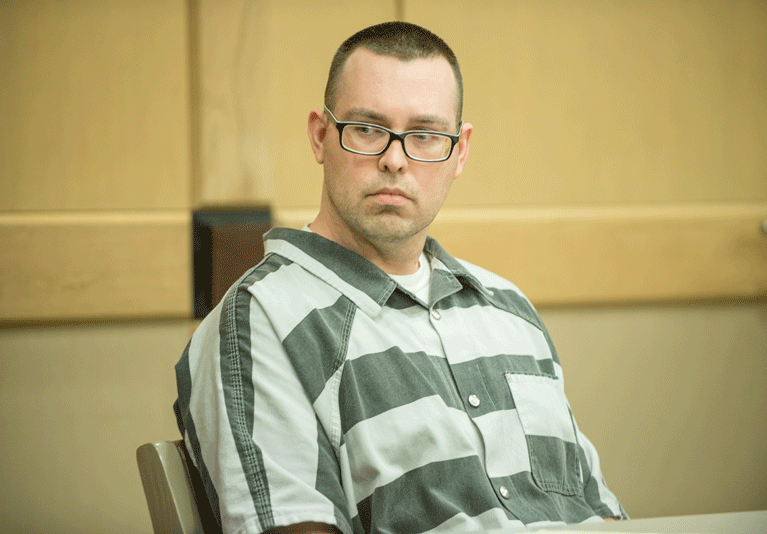
Five years to the week from when the body of 26-year-old Moorings resident Diana Duve was found in the trunk of her own car, the trial of her accused killer Michael David Jones finally seems near. The date for jury selection has been set for Oct. 1.
Four weeks of courtroom time is being budgeted for the fall. Should Jones be convicted, sentencing proceedings could take an additional few weeks as the first-degree murder charge Jones is facing carries the potential for the death penalty.
Due to recent changes in Florida law, the state would be required to carry out some very specific duties, including a full and independent psychological competency evaluation of Jones.
While preparation for trial is coming to a close, defense attorneys are already laying groundwork for who they might use as character witnesses for Jones should he be convicted. The defense on June 14 asked Vaughn to order video testimony be taken from Jones’ elderly grandmother now, in case she does not survive until the end of the trial.
“A listed defense penalty witness Ann McDonald Clark, (date of birth redacted), is declining in health. She currently has trouble getting in and out of bed, and walking,” wrote defense attorney Shane Manship, one of Jones’ lawyers.
Clark lives in Georgia, and due to her health will be unable to attend the trial in Vero. If Manship’s request is granted, staffers from State Attorney Bruce Colton’s office would have to travel to Georgia to conduct a video deposition of Clark to be played for the court during the sentencing phase if Jones is convicted.
“Her testimony is material, and it is necessary to this case,” Manship said.
It’s unknown what Clark might reveal that could mitigate Jones’ situation if convicted, but case discovery documents over the years, dating back to Jones’ law school days at the University of Miami, show that he claims to have had a very turbulent childhood.
Circuit Court Judge Dan Vaughn’s four-week timetable came prior to defense motions that potential jurors be questioned individually about what they have seen and heard in the news media about the case, as to not poison the entire jury pool if there are people who have not followed the sad story of the Sebastian River Medical Center nurse and her on-again, off-again boyfriend Jones.
Assistant State Attorney Brian Workman, now clocking five years preparing this case, said in general, in instances of individual “voir dire,” potential jurors are separated from each other during questioning, but that they are still questioned in the open public courtroom.
In addition to this individual voir dire of the jury, Public Defender Diamond Litty’s office also wants the defense and prosecution to alternate the first line of questioning with each potential juror asked to reveal his or her feelings about the death penalty.
The rationale is that defense attorneys can pose the questions in a way that does not predispose the jurors to a guilty verdict.
An emergency hearing may be scheduled to consider the motion to order Jones’ grandmother’s video testimony, but the next routine hearing on pre-trial motions is set for the second week in July.



